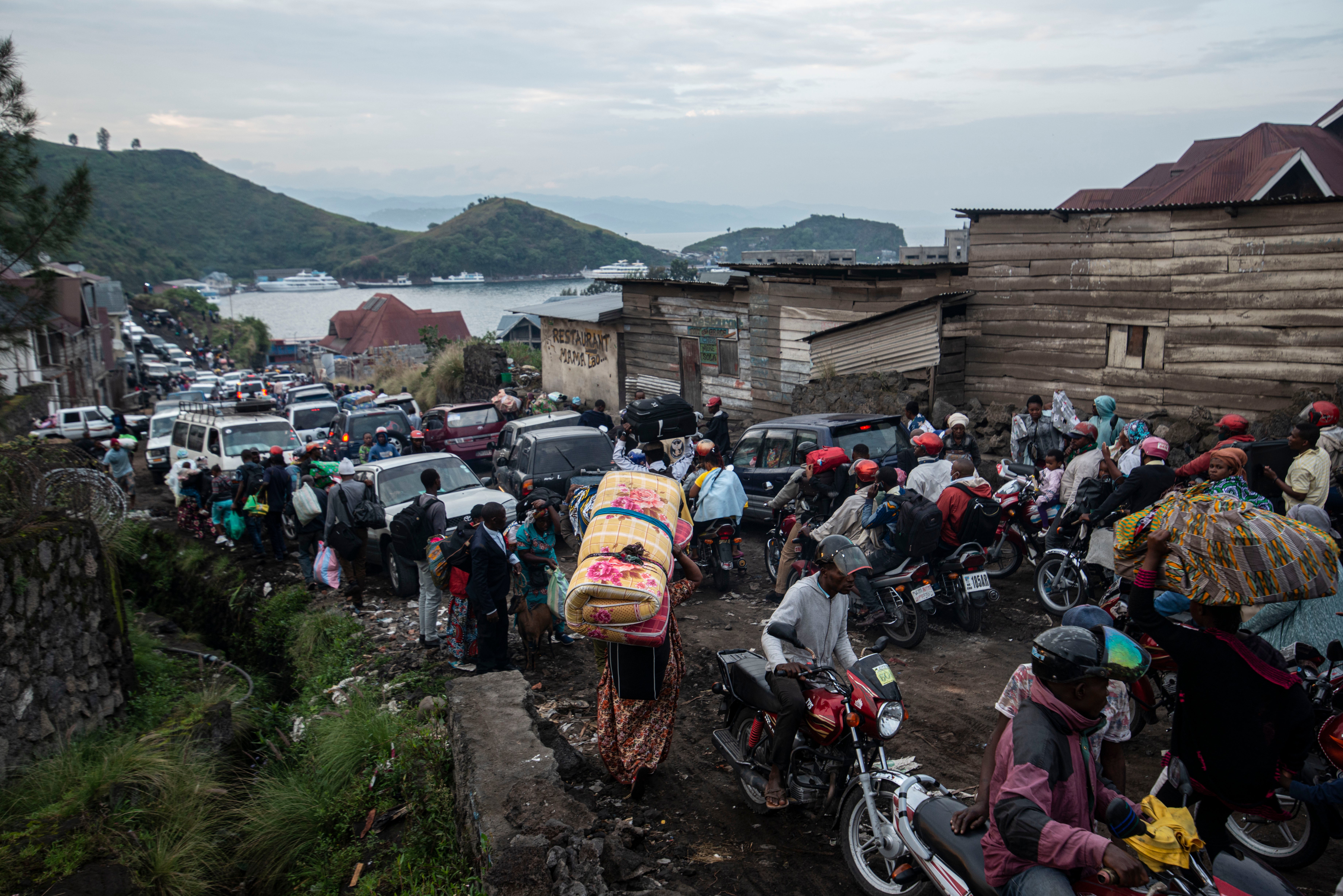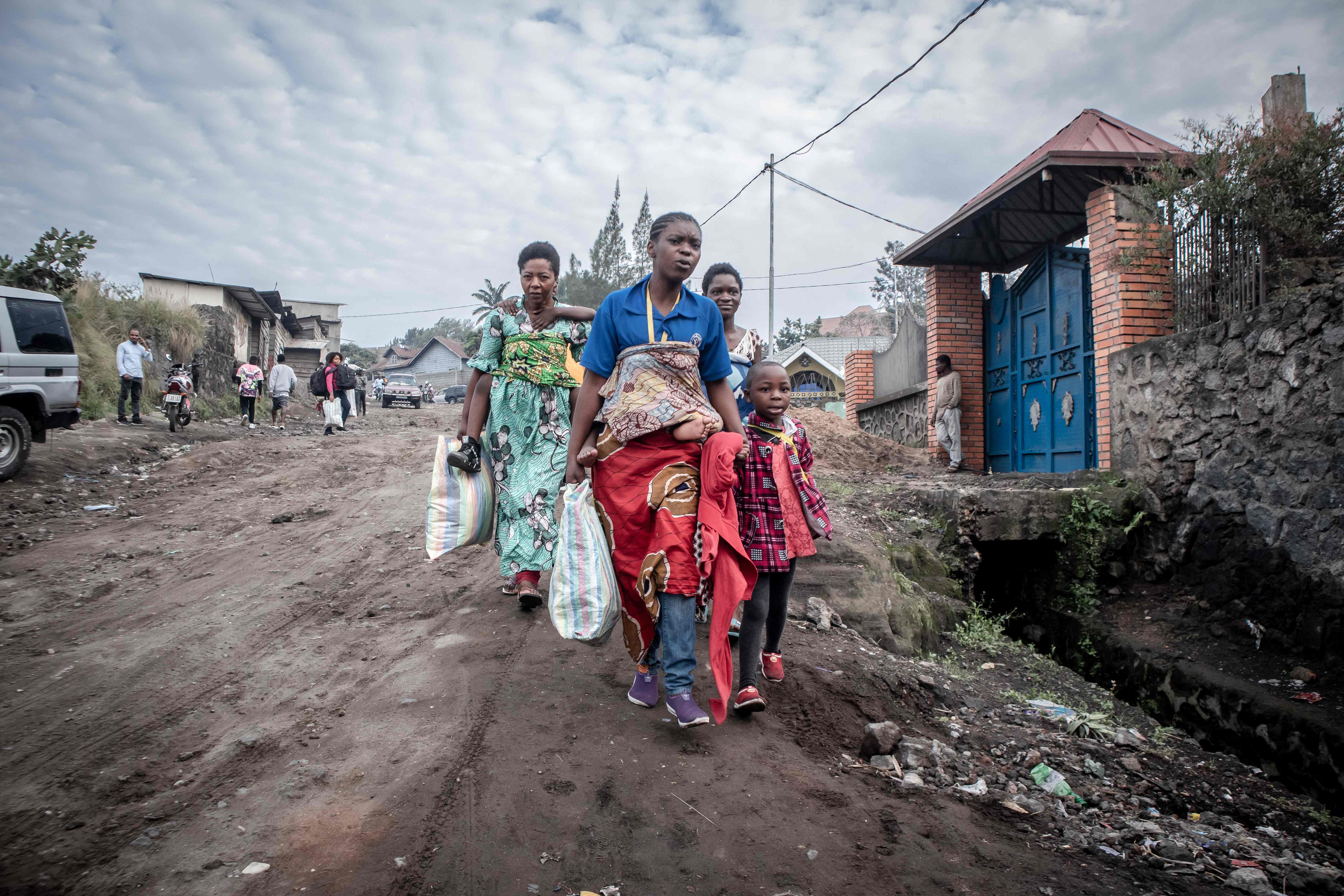Congo volcano: Warning of fresh eruption triggers mass exodus in Goma
“Evacuation is compulsory. Those who do not adhere swiftly carry unnecessary risks,” the military governor said.

Your support helps us to tell the story
From reproductive rights to climate change to Big Tech, The Independent is on the ground when the story is developing. Whether it's investigating the financials of Elon Musk's pro-Trump PAC or producing our latest documentary, 'The A Word', which shines a light on the American women fighting for reproductive rights, we know how important it is to parse out the facts from the messaging.
At such a critical moment in US history, we need reporters on the ground. Your donation allows us to keep sending journalists to speak to both sides of the story.
The Independent is trusted by Americans across the entire political spectrum. And unlike many other quality news outlets, we choose not to lock Americans out of our reporting and analysis with paywalls. We believe quality journalism should be available to everyone, paid for by those who can afford it.
Your support makes all the difference.Tens of thousands of residents fled the Congolese city of Goma on Thursday after officials warned of a second volcanic eruption from Mount Nyiragongo, one of the world's most active volcanoes.
Among those fleeing on foot was Alfred Bulangalire, 42, with his wife and four children.
"The first day, I didn't move because there were no orders, but today it's different," he said. "I know that my shop will be looted, but I have to protect myself and my family.”
An eruption on Saturday killed 31 people, destroyed 3,000 houses and left 20,000 people homeless. At least 40 people are missing.
The lava stopped just 300 metres short of Goma airport, the central hub for aid operations in the eastern Democratic Republic of Congo. The city was spared. However, hundreds of earthquakes over the years have ravaged buildings and left cracks in the roads.
Constant Ndima Kongba, the military governor of North Kivu province, said that magma, the molten rock beneath the Earth's crust, had been detected under the city and the adjoining Lake Kivu.

Given these scientific observations, Mr Ndima said he couldn't rule out an eruption on land or under the lake, which could occur with little or no warning.
In a worst-case scenario, a volcanic eruption under the lake, accompanied by a large earthquake, could trigger a sudden release of carbon dioxide with potentially devastating consequences for thousands of people, volcanologists in Goma warned on Thursday.
Chiara Frisone, a spokesperson for the United Nations Children's Fund, said people were fleeing in every direction.
"There are local people and international organisations as well; it's quite a chaotic situation," she said, adding that the UN's emergency response teams and local partners were staying in the city.
The UN said it was temporarily relocating non-essential staff, its aid workers, and their dependents to the city of Bukavu, around 50km (30 miles) south.
"Evacuation is compulsory. Those who do not adhere swiftly carry unnecessary risks," Mr Ndima said.
Thousands of people heeded his message, left town on foot, with huge bundles on their heads. Others fled by car, creating traffic jams across the city, or on large boats that took them across Lake Kivu.
A spokesman for the national government said at one point that boat traffic had been banned because Lake Kivu was considered dangerous, but a local governor later said the lake would remain open.
The last eruption in 2002 buried 10 neighbourhoods in the east of the city and killed 170 people.
Join our commenting forum
Join thought-provoking conversations, follow other Independent readers and see their replies
Comments